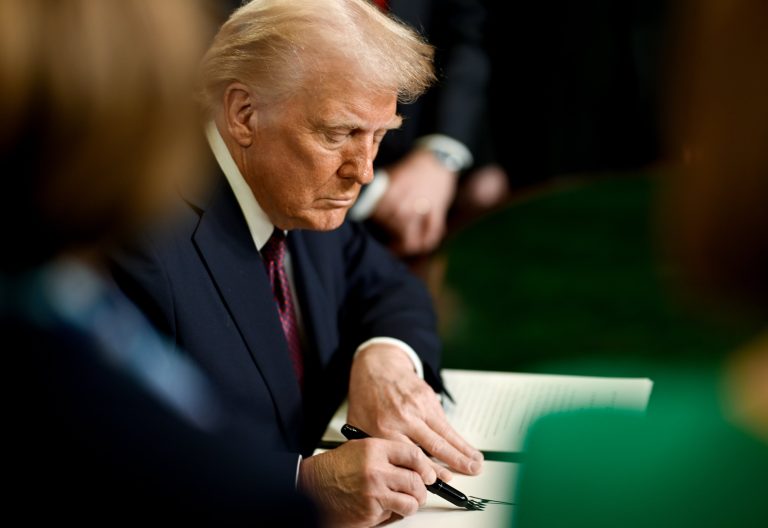US tariffs could worsen global economic instability

On February 13, President Donald Trump directed his economic team to develop plans for imposing reciprocal tariffs on every country that taxes US imports. If enacted, this approach could lead to multiple trade conflicts and create significant global uncertainty.
“On trade, I have decided for purposes of fairness, that I will charge a reciprocal tariff, meaning whatever countries charge the United States of America, we will charge them. No more, no less,” Trump stated in the Oval Office. His body language during the announcement suggested that he views tariffs as a critical negotiation tool, especially in a world where multilateralism is on the rise.
While Trump frames these tariffs as a strategy to achieve “fair” trade with both allies and adversaries, the reality is that they will not benefit global consumers, and even American consumers will feel the impact. Last Monday, Trump announced that steel and aluminum imports, regardless of their country of origin, will face a 25 percent tariff, effective March 12. Countries that export these metals to the US must meet Trump’s demands before the tariff takes effect.
Reuters reported on February 9 that since Trump returned to office on January 20 and imposed tariffs on Mexico, Canada, and China, the US dollar has weakened against other currencies, signaling that tariffs are not an effective economic policy. The use of tariffs and quotas rarely benefits either side; both nations involved are likely to suffer. Escalating trade wars will only intensify the damage. In today’s global economy, coercion should not be used as a diplomatic tool.
When steel and aluminum are subject to tariffs, the consequences will be far-reaching. Not only will the supply chain be affected, but the auto industry is expected to bear the brunt of the impact, with vehicle prices likely to rise. These price hikes will affect consumers not only in the US but also in other nations. Tariffs disrupt global economic stability, and one nation’s persistent use of tariffs to pressure others should be concerning for everyone.
While Trump’s aim with these tariffs is to strengthen America’s position, the global economy is highly interconnected. The resulting damage will extend beyond the U.S., tarnishing its image as a leader in global cooperation. America, once seen as a proponent of global good, now appears to be pursuing isolationist policies aimed at undermining the economies of nations it perceives as competitors.
Although it may seem that the 25 percent tariff on steel and aluminum will primarily affect Washington’s traditional allies, such as the European Union, Canada, Brazil, Mexico, and South Korea, the ultimate target could be China. Canada, for instance, supplies nearly 80 percent of US aluminum imports. Prime Minister Justin Trudeau, speaking on behalf of Canada, emphasised the deep economic integration between the US and Canada, stating, “Together we make North America more competitive.”
China’s dominance in steel production, accounting for more than half of the world’s output, also positions the country as a key player in the sector. Trump’s tariffs on steel may be aimed at Beijing, as China’s prices undercut US producers. However, by continuing to impose tariffs on its trading partners, the US may inadvertently empower China, as countries like Canada, South Korea, Brazil, Mexico, and Vietnam may seek closer ties with China, which favors collaboration over protectionist tactics.
Trump claims that these tariffs will raise revenue from non-US entities, but this is misleading. Tariffs are ultimately paid by importers, not exporters. Although exporters may offer some price reductions, the US is no longer the dominant global buyer it once was, making it unlikely that significant savings will be realized, especially when alternative markets exist.
— The writer is a Journalist and Communications Consultant












